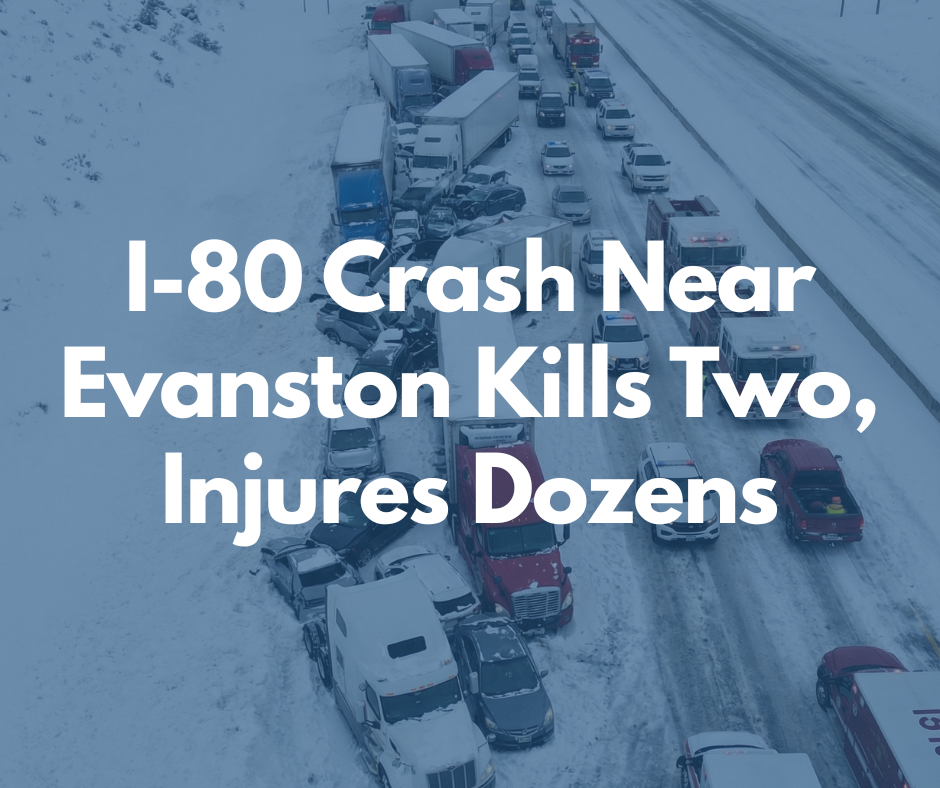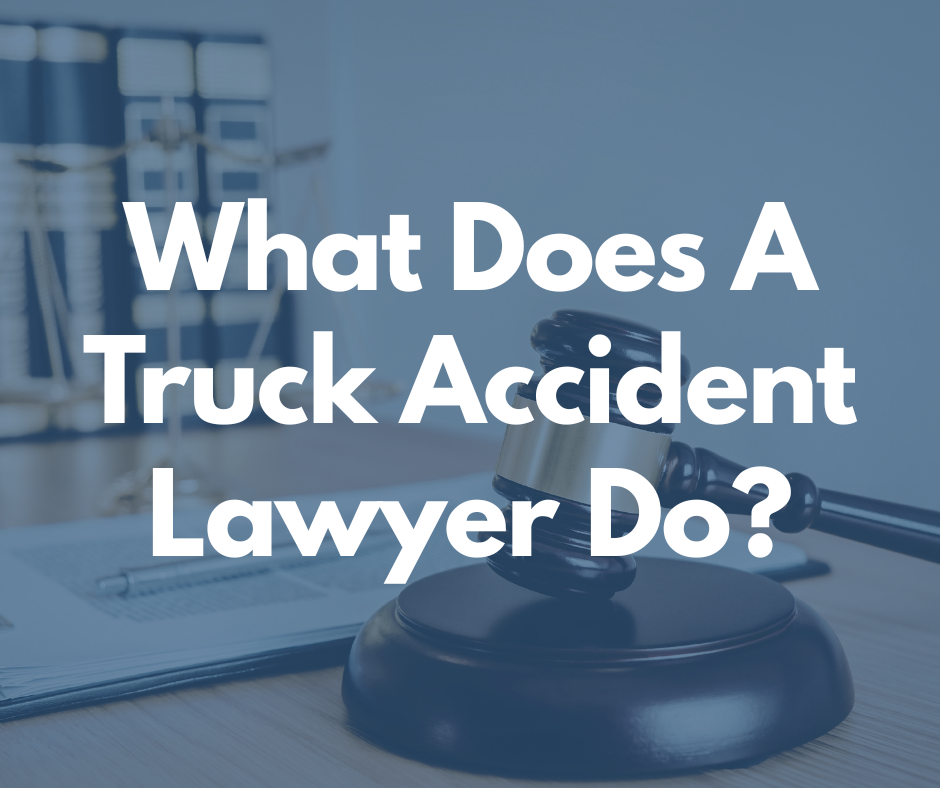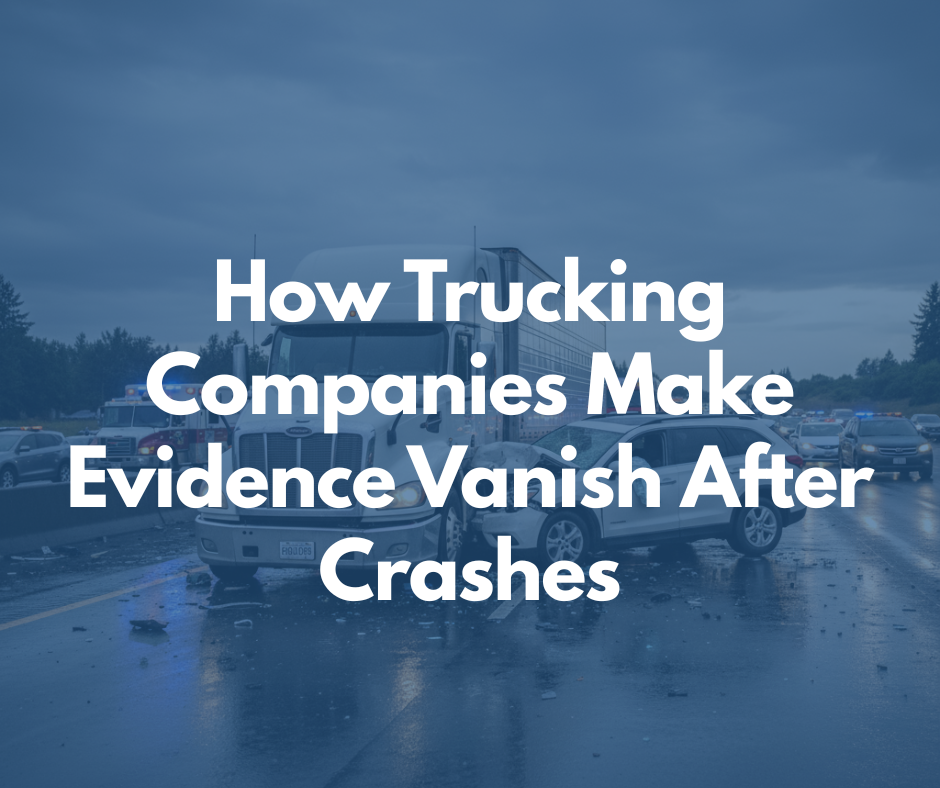
TL:DR - Key Points
- Trucking companies often deploy rapid response teams to crash scenes to control and eliminate truck crash evidence before victims can preserve it
- Critical data from engine control modules and dash cameras gets overwritten within days or even hours after a crash
- Maintenance records, driver qualification files, and hours-of-service logs routinely "disappear" when they show corporate negligence or federal regulation violations
- A truck crash lawyer must act immediately to send spoliation notices and preserve evidence before it vanishes permanently
- Every day of delay makes it harder to prove what really happened and why trucking company choices put you in danger
Here's something most people don't know: by the time you call a lawyer after a serious truck crash, critical evidence is already disappearing. Trucking companies and their insurers have rapid response teams that show up at crash scenes within hours, sometimes faster than you can get released from the emergency room. They're not there to help you. They're there to control the narrative and make truck crash evidence vanish before it can be used against them.
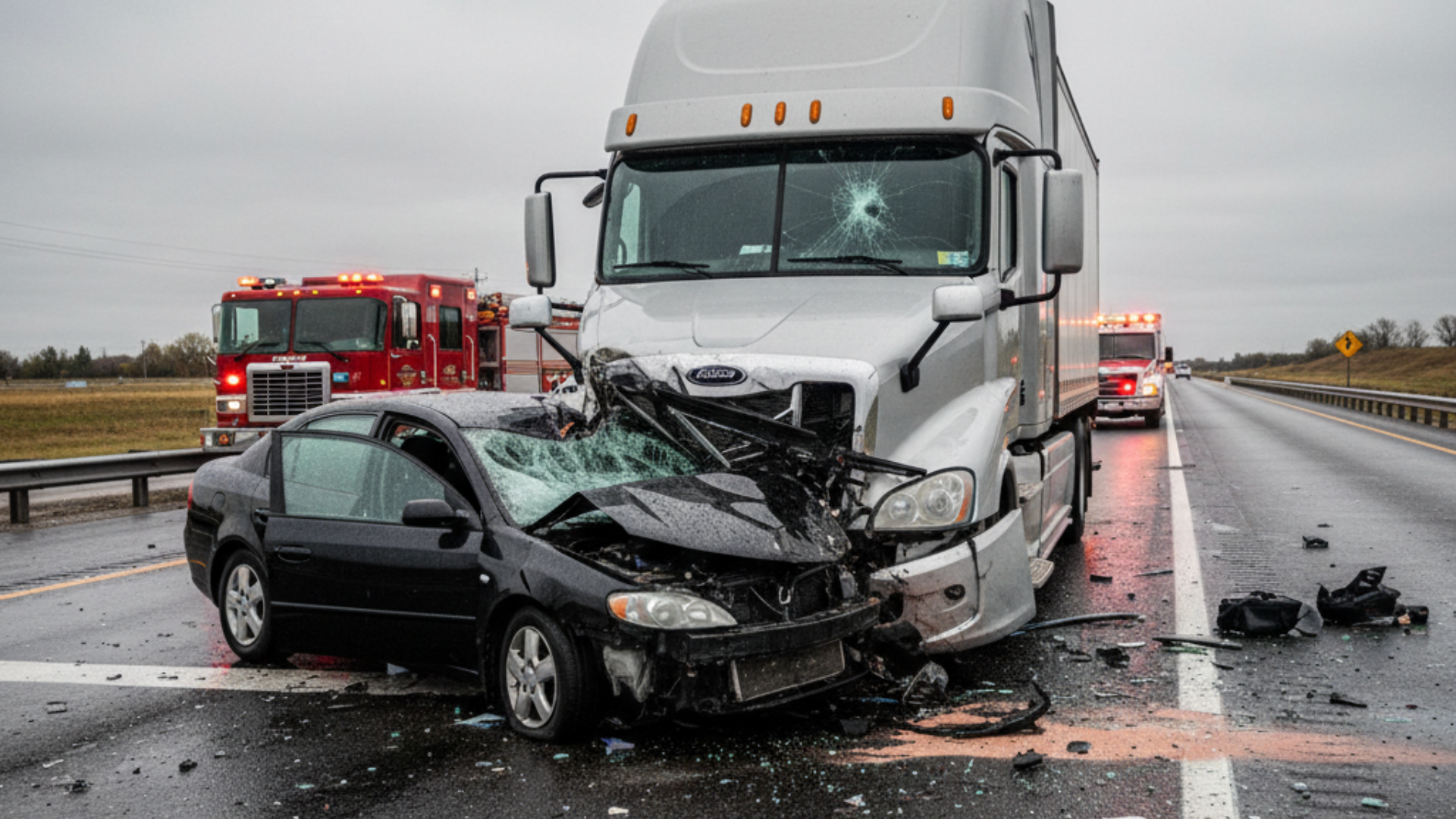
I've been handling truck crash cases across Colorado, Wyoming, Washington, Oregon, and Nebraska for more than 15 years. I've also driven commercial trucks myself and hold a CDL. That combination gives me insight into both sides of these cases, and I can tell you this: the simpler a crash looks on the surface, the more likely it is that a trucking company is hiding something serious.
Why Evidence Disappears So Fast
When a crash involves an 18-wheeler or commercial truck, the stakes are massive for trucking companies. They know that truck crash evidence can expose corporate negligence, federal trucking regulations violations, and patterns of misconduct that go far beyond just driver error. That's why they move fast to control what gets preserved and what gets "lost."
These rapid response teams include their own lawyers, investigators, and technical experts. They download data, photograph the scene from angles that favor their version of events, and start building their defense before you've even thought about hiring a truck crash lawyer. Meanwhile, the clock is ticking on evidence that could prove your case.
What They're Trying to Hide
Modern commercial trucks are essentially computers on wheels. They have multiple systems that record everything about how the truck was operated, but here's the problem: most of this data doesn't stick around forever.
Engine control modules work like airplane black boxes. They capture snapshots when something sudden happens, recording throttle position, RPMs, brake application, steering angle, whether the seatbelt was fastened, and dozens of other data points. This truck crash evidence can prove whether the driver was speeding, whether they tried to brake, and whether safety equipment was functioning properly.
But these modules overwrite old data constantly. Some only keep the last three "events" before erasing everything else. Others wipe yesterday's data the moment someone turns the ignition the next day. If nobody downloads this information within days or even hours of a crash, it's gone forever. And trucking companies know this.
The same goes for dash camera footage. Many trucks have cameras that record both the road and the driver's face. Some even use AI to detect when a driver is falling asleep and send alerts to the company. That footage and those alert records prove what the company knew about dangerous driving. But footage gets overwritten on a loop, and companies aren't exactly rushing to preserve it when it shows their driver nodding off before plowing into your vehicle.
The Maintenance Records Shell Game
Federal trucking regulations require carriers to keep maintenance logs for at least six months, but here's what happens in practice: when there's a serious crash, records start disappearing. A truck that was overdue for brake service suddenly has a fresh maintenance log showing everything was fine. Records of previous mechanical problems vanish from the files.
We've seen it in cases across Washington, Oregon, and beyond. Bills of lading that would show a driver couldn't possibly have made all their deliveries without violating hours-of-service rules get "misplaced." Driver qualification files that document previous crashes, failed drug tests, or performance problems become incomplete. Receipts from fuel stops that would prove a driver was falsifying their logbook somehow aren't available anymore.
This is where evidence preservation becomes critical. A truck crash lawyer who knows what they're doing will immediately send what's called a spoliation notice. This legal document puts the trucking company on notice that they must preserve all evidence related to the crash. If they destroy evidence after receiving this notice, a court can punish them for it, and a jury can be told to assume the destroyed evidence would have hurt the company's case.
But spoliation notices only work if they're sent fast, before the "accidental" deletion happens.

Inside the Truck Cab
Physical evidence inside the truck cab tells stories that companies don't want heard. We've found pill bottles that raise questions about whether a driver was impaired. Synthetic urine kits that drivers use to cheat drug tests. Open alcohol containers. Cell phones showing text messages sent seconds before impact.
In a recent Colorado case, we found evidence that a driver had been falling asleep at the wheel for weeks, and the company's own AI dash cam system had been sending alerts about it. The company did nothing. That's not just negligence. That's corporate negligence that justifies punitive damages.
But if we hadn't moved fast to preserve that truck crash evidence, it would have disappeared. The company would have claimed the driver was a model employee, and we'd have had no way to prove otherwise.
Why Your Car's Data Matters Too
Here's something that surprises people: your own vehicle might have evidence too, and the trucking company's lawyers will be looking for it. If your car has an event data recorder, it captured information about the crash. If you were using your phone, they'll want those records to argue you were distracted.
That's why you need a truck crash lawyer who knows this game. We're not just gathering evidence against the trucking company. We're protecting you from bogus comparative negligence claims that try to shift blame onto you.
The Real Cost of Delays
Every day that passes after a crash, truck crash evidence disappears. Data gets overwritten. Memories fade. Documents get "reorganized." The longer you wait to get legal help, the harder it becomes to prove what really happened and why.
Trucking companies in Wyoming, Nebraska, and across our region know that most people don't understand how fast they need to act. They're counting on you to wait, to think things over, to believe their insurance adjuster who says everything will be handled fairly. Meanwhile, evidence that could change your life is evaporating.
If you or a loved one was injured in a crash with a commercial truck, call us at 866-377-3800 or schedule a free consultation at www.metierlaw.com.
Frequently Asked Questions
How long does truck crash evidence last before it's gone?
Some truck crash evidence, like engine control module data, can be overwritten within days or even hours. Dash cam footage often records on a loop that overwrites itself every few weeks. Federal trucking regulations require maintenance records to be kept for six months, but records can "disappear" much faster if nobody's watching. That's why getting a truck crash lawyer involved immediately is critical.
What is a spoliation notice and why does it matter?
A spoliation notice is a legal document that tells a trucking company they must preserve all evidence related to your crash. This includes electronic data, maintenance records, driver files, and physical evidence. Once they receive this notice, destroying evidence can result in serious legal consequences and can help your case at trial. The key is getting this notice sent before evidence starts disappearing.
Can trucking companies really delete evidence after a crash?
Yes, and it happens more often than you'd think. Sometimes it's deliberate destruction of evidence. Other times companies claim data was "accidentally" overwritten or records were "routinely purged." Either way, the result is the same: truck crash evidence that would have proven corporate negligence or violations of federal trucking regulations is gone. That's why we move fast to preserve everything before it can vanish.
What evidence from truck crashes is most important?
The most critical truck crash evidence includes engine control module data, dash cam footage, maintenance and inspection records, driver qualification files, bills of lading, hours-of-service logs, drug and alcohol testing records, and cell phone data. Each piece tells part of the story about what the driver and company were doing before the crash. Together, they can prove patterns of negligence that go far beyond simple driver error.
Do I really need a lawyer who specializes in truck crashes?
Yes. Truck crash cases are completely different from regular car accidents. They involve federal trucking regulations, complex evidence that disappears quickly, corporate defendants with massive resources, and rapid response teams that show up before you've left the hospital. A truck crash lawyer who knows this world understands what evidence to preserve, how to preserve it, and how to use it to prove your case. Without that specialized knowledge, you're at a serious disadvantage.
Why You Need Someone Who Knows Both Sides
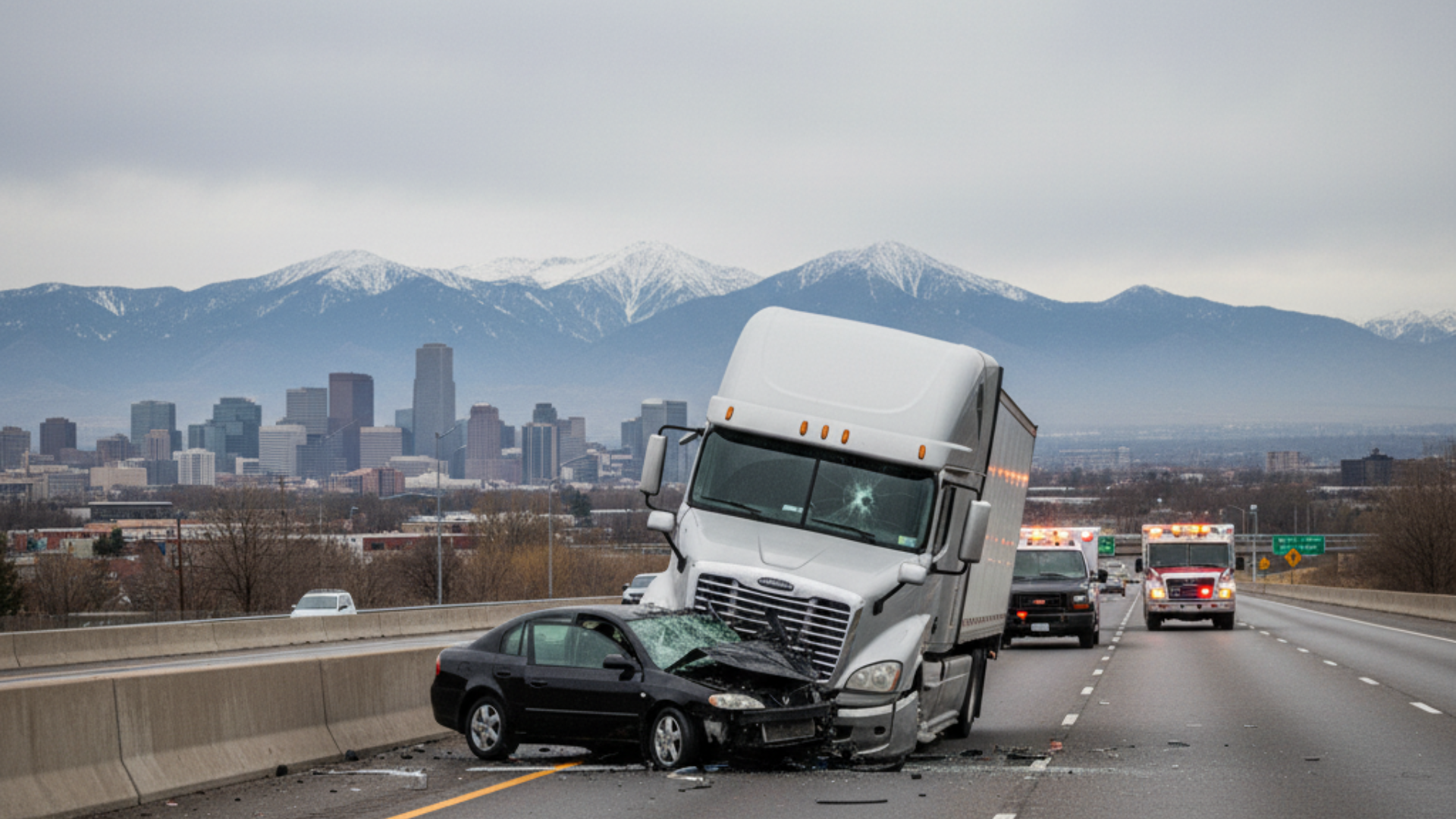
Most lawyers don't understand the trucking industry from the inside. They don't know what drivers are taught in CDL training, how dispatchers pressure them to cut corners, or what corporate executives decide when they choose profit over safety.
I do. I've driven commercial trucks, and I've spent more than 15 years fighting trucking companies in court. That combination means I know exactly what evidence to look for, where companies hide their wrongdoing, and how to prove that a "simple" crash was actually the result of corporate choices that put you in danger.
We handle truck crash cases across Colorado, Wyoming, Washington, Oregon, and Nebraska because these cases require specialized knowledge that most attorneys don't have. When evidence is vanishing by the hour, you need someone who knows how to stop it.
Whether you need the experience of a trusted Seattle, Denver, Fort collins, Omaha, Portland truck accident lawyer, our team knows how to act fast when critical evidence is disappearing by the hour.
Call Metier Law Firm at 866-377-3800 or schedule your free consultation today at www.metierlaw.com.
Disclaimer: Past results discussed should not be considered a guarantee of your results as the factors of every case are individually unique. This content is for informational purposes only and does not constitute legal advice. Consult a qualified attorney from Metier Law Firm regarding your individual situation for legal advice.
Tell Us About Your Case – Free Case Review with a Truck Accident Lawyer
Tell Us About Your Case – Free Case Review with a Personal Injury Lawyer
(866) 377-3800Our Locations
.webp)
Do I have a Case?
How Much Should I Be Offered?
Do I Need an Attorney?
If these questions have crossed your mind, let us help. You may need a little direction or may not need an attorney at all, but you deserve to be confident knowing your options. We can provide you with information about our Attorneys of the West® accident investigations and legal services. Your confidential consultation with us is totally free.
Keep up with us!

.svg)


